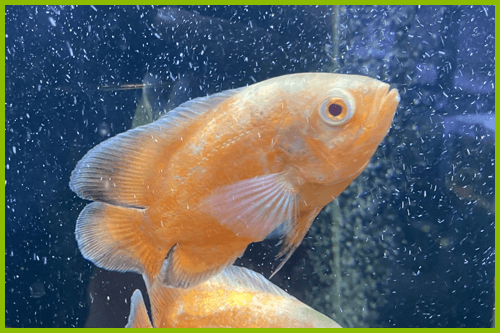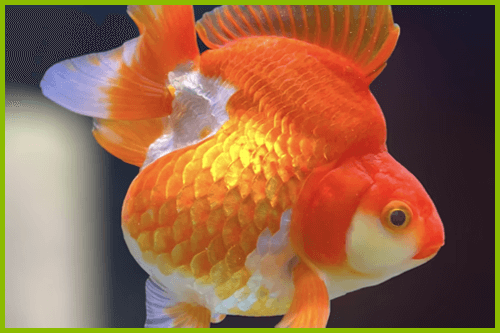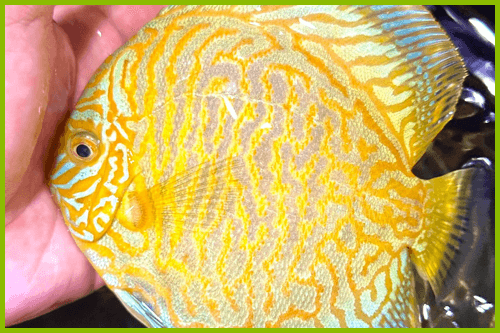What to Feed Discus Fish: A Complete Feeding Guide for Healthy Growth & Colour
Kelvin will explain the different types of foods you can feed your Discus and their pros & cons.
Foods for your Discus
- Sera Food
- Tropical Food
- Freeze Dried Black Worms
- Seafood Mix
When it comes to keeping Discus healthy, diet is everything. These graceful fish, their beauty doesn’t come without effort. A well-balanced feeding routine ensures strong growth, vibrant colours, and a long life.
But if you’re new to Discus care, it’s easy to feel overwhelmed: “What do Discus fish actually eat?” Should you stick to prepared foods, or are live and frozen options better? And how often should you feed them without overloading your tank?
In this guide, we’ll break down the best foods for Discus, feeding routines, and tips to avoid common mistakes, so you can confidently nourish your Discus and enjoy a thriving, colourful aquarium.
Why Nutrition Matters for Discus Fish
Discus are not your average community fish. They are sensitive, high-maintenance, and require more care than most tropical species. Because of their unique physiology and higher metabolism, poor nutrition shows quickly—from faded colours and stunted growth to weak immune systems and shortened lifespans.
A proper diet isn’t just about keeping them full. It’s about:
- Healthy Growth
Discus need a protein-rich diet to develop size and shape properly during their juvenile stage. - Colour Enhancement
Certain nutrients and natural pigments bring out their bright reds, blues, and yellows. - Disease Resistance
A strong immune system helps them fight off common Discus diseases and parasites. - Breeding Success
Well-fed Discus are more likely to pair, spawn, and raise healthy fry.
In short, what you feed your Discus directly determines how they look, how they behave, and how long they live.
What Do Discus Fish Eat in Nature?
To understand how to feed Discus in captivity, it helps to look at what they eat in their natural habitat. In the Amazon River basin, Discus are opportunistic omnivores. They forage slowly through calm waters, picking at:
- Small invertebrates and worms, providing essential proteins and fats.
- Insect larvae, a natural energy source rich in amino acids.
- Plant matter, algae, and detritus, supplying fibre, minerals, and trace nutrients.
This diet is highly varied and seasonal, depending on what the flooded forest waters offer. In the aquarium, we aim to replicate this diversity with a mix of high-quality prepared foods, frozen and live options, and occasional vegetable-based supplements.
By mimicking their wild feeding behaviour, you’ll encourage more natural activity, better digestion, and brighter colouration.
Best Food for Discus Fish (Types & Options)
Feeding Discus isn’t about finding a single “magic food” but creating balance. Since Discus are slow and deliberate eaters, the right food must be nutrient-dense and easy to consume.
Here’s a breakdown of the most common types of Discus food you can use:
- Live Food
Live foods are often considered the “gold standard” for boosting growth and conditioning breeding pairs. They’re highly nutritious and stimulate natural hunting behaviour. - Frozen Food
Frozen foods offer much of the same nutrition as live, but with less risk of introducing pathogens into your tank. They’re convenient and easy to store. - Prepared (Dry) Food
Modern high-quality pellet and flake foods are specially designed for Discus. They’re balanced, enriched with vitamins, and much easier to manage than live or frozen foods.
✨ Tips: A healthy feeding plan mixes all three categories. Think of prepared food as the daily foundation, frozen food as the reliable booster, and live food as the occasional treat.
Also, read our full article on 6 Essential Things You Need To Know About Fish Tank Filters
Discus Food for Growth and Colour
Every Discus keeper dreams of seeing their fish grow strong, vibrant, and full of life. While genetics play a role, diet is the key to unlocking their potential. The right nutrition helps juveniles reach their full size, strengthens immunity, and enhances their stunning colours.
Here are the top food categories to focus on:
A. For Rapid Growth
Young Discus need protein-rich diets to fuel their development. The best options include:
- Beef Heart Mix
time-tested formula, often blended with spinach, vitamins, and shrimp for balance. - Blackworms
Excellent for boosting weight and body mass. - High-protein Pellets
Easy to digest, ensuring steady growth without bloating.
Consistent feeding of these foods ensures juveniles grow into large, round-bodied adults.
B. For Colour Enhancement
Discus colours are heavily influenced by diet, particularly foods rich in carotenoids and natural pigments. Good choices are:
- Krill
Packed with astaxanthin, a powerful colour enhancer. - Spirulina Flakes/Pellets
Boost blues, greens, and reds while improving immunity. - Specialised Colour-enhancing Pellets
Formulated to bring out reds, oranges, and yellows.
Feed these regularly to keep your Discus glowing with natural brilliance.
C. For Balanced Health & Longevity
Discus also needs fibre and micronutrients to maintain healthy digestion and prevent common issues like bloating. Recommended options include:
- Daphnia
Acts as a natural laxative, preventing constipation. - Vegetable-based Pellets
Add balance to protein-heavy diets. - Vitamins & Supplements
Especially Vitamin C and E, which support immunity.
Think of these as “maintenance foods” that help your Discus live long, stress-free lives.
D. Other Foods Recommended by OZ Discus
- Sera Food
- Sera Insect Food is a crowd favourite among most Discus. It’s an excellent dry granular food, and the Discus love the taste. It has 52% protein and is free from dyes and preservatives.
- Sera Growth Food, a great food to feed your younger Discus. It stabilises the intestinal flora and supports the quick and balanced development of the Discus.
- Sera Colour Food: This product enhances the colour of your Discus. It contains a combination of ingredients that optimise the colour.
- Tropical Food
- Tropical D-50 Plus is an excellent sinking granular food with a colour enhancement, so you don’t need to feed your Discus a separate colour food. However, avoid feeding this to yellow Discus as it can turn them orange.
- Tropical Astacolor Flakes are a colour-enhancing food. They have been specially formulated for super red champions. However, this food contains a low amount of protein, so ensure you also feed your Discus a high-protein food along with the Astacolor Flakes.
- Freeze Dried Black Worms
Freeze Dried Black Worms are an excellent source of protein for your Discus. Each block contains densely packed freeze-dried black worms and contains 66.6% protein!
There are 3 types of freeze-dried black worms that are usually available.-
Regular: The regular variety contains no additional additives and is most recommended.
-
Spinach: The spinach variety also contains spinach, which can cause bloating. So, if you feed this to your Discus, fast them once a week or add Epsom salt to help with the bloating.
-
Colour: The colour variety also contains a colour enhancer to boost the colour of your Discus.
-
- Seafood Mix
The OZ Discus seafood mix contains a variety of seafood, such as tuna and prawns, and a range of vitamins and minerals to keep your Discus happy and healthy.
Read our full article on How We Make Our Seafood Mix on a Commercial Scale
✨ Tips: Instead of overloading on one type of food, create a weekly rotation plan. This ensures Discus receives all the nutrients it needs for growth, colour, and overall vitality.
How Often Should You Feed Discus Fish?
Feeding Discus is not only about what you feed but also how often you feed. Overfeeding pollutes the water and stresses the fish, while underfeeding stunts their growth. Here’s a general feeding frequency guide based on their age and stage of development:
1. Juvenile Discus (up to 9 months old)
- Frequency: 4–5 times a day.
- Reason: Juveniles are growing rapidly and need frequent meals to develop body mass, strong immune systems, and vibrant colouration.
2. Sub-Adult Discus (9–14 months old)
- Frequency: 3–4 times a day.
- Reason: Growth slows down, but still requires energy for body shaping and colour development.
3. Adult Discus (14+ months)
- Frequency: 2–3 times a day.
- Reason: Adults are fully grown and need maintenance feeding to stay healthy, active, and colourful.
4. Breeding Discus
- Frequency: 3–4 times a day.
- Reason: Pairs need extra nutrition to support breeding behaviour, egg production, and fry care.
⚠️ Important Feeding Tips:
- Always feed small amounts that can be eaten in 2–3 minutes.
- Remove uneaten food to keep water quality high.
- Stick to a consistent schedule. Discus thrive with routine.
✨ Tips: Observe your fish. If they consistently leave food behind, reduce the portion. If they eagerly eat everything, you may need to increase feeding or add an extra small meal slightly.
Also, read our full article on How to Use Potassium Permanganate for Fish Treatment
Recommended Discus Feeding Routine (Sample Plan)
🗓️ Daily Feeding Schedule (for Adult Discus)
- Morning (8–9 AM): High-protein food (e.g., beef heart mix or quality frozen food like bloodworms).
- Afternoon (1–2 PM): High-quality dry food (e.g., sera discus feed or granules rich in vitamins).
- Evening (6–7 PM): Colour-enhancing or varied frozen/live food (e.g., brine shrimp, daphnia).
💡 Note: For juveniles, simply increase frequency (4–5 small meals instead of 2–3).
📅 Weekly Feeding Plan Example
- Monday: Protein-rich frozen food (morning), granules (afternoon), live brine shrimp (evening).
- Tuesday: Beef heart mix (morning), high-quality dry food (afternoon), bloodworms (evening).
- Wednesday: Granules (morning), frozen food mix (afternoon), live food (evening).
- Thursday: Protein-rich food (morning), granules (afternoon), frozen brine shrimp (evening).
- Friday: Beef heart mix (morning), high-quality dry food (afternoon), bloodworms (evening).
- Saturday: Granules (morning), varied frozen/live mix (afternoon), colour-enhancing dry food (evening).
- Sunday (Light Day): 1–2 lighter meals, mostly dry food to let digestive systems rest.
Common Feeding Problems and Solutions
Even with the best food and feeding plan, Discus keepers often face challenges. Here are some of the most common issues—and how to solve them.
- Discus Refusing to Eat 🐟
- Problem: A new or stressed Discus may ignore food, especially in a new tank or after transport.
- Solution: To stimulate appetite, keep the tank calm, maintain excellent water quality, and start with live or frozen foods (like brine shrimp). Slowly transition to dry food once they’re comfortable.
- Overfeeding and Water Quality Issues ⚖️
- Problem: Discus have big appetites, and uneaten food quickly spoils water, causing ammonia spikes.
- Solution: Feed smaller portions 2–3 times daily, and remove uneaten food within 5–10 minutes. Regular water changes are essential.
- Uneven Feeding (Dominant vs. Shy Fish) 🍽️
- Problem: Aggressive or dominant Discus may eat more, leaving weaker ones malnourished.
- Solution: Spread food across different areas of the tank, or use feeding cones/dishes to ensure every fish gets a fair share.
- Dependence on One Food Type ❄
- Problem: Some Discus only accept one food (often frozen bloodworms), leading to unbalanced nutrition.
- Solution: Gradually mix in small amounts of other foods. For example, sprinkle granules with frozen food to encourage acceptance.
- Digestive Issues and Bloating 🧪
- Problem: High-protein diets (like beef heart) can sometimes cause bloating.
- Solution: Rotate meals with lighter foods such as brine shrimp or daphnia, and include a “light feeding day” weekly to let their digestive system reset.
💡 Key Takeaway: Various, moderation, and observation can solve most feeding problems. Discus thrive when aquarists stay consistent but flexible with their feeding routine.
FAQs
- How often should I feed my Discus?
You can feed your adult Discus up to one to two times per day. Once in the morning and once in the evening. If you have young Discus in their growth stage, you can increase this to 4 times a day. - How much should I feed my Discus?
You should feed your Discus enough food so that they consume is within one to two minutes. Remove any leftover food from the tank after that time. - What happens if I overfeed or underfeed my Discus?
Overfeeding your Discus can lead to ammonia spikes in the tank if you’re not performing water changes regularly or you’re leaving uneaten food in the tank. Underfeeding can cause stress in your Discus over time. - Can I feed my Discus beef heart?
Beef heart is a lean meat that has been traditionally fed to Discus over the years as it can help with growth and development. However, we have found that in a farm environment, when the Discus are fed beef heart, there is a greater percentage of fish with worms. That is why we always recommend feeding your Discus food other than beef heart. Any of the granular foods from Sera and Tropical and the OZ Discus Seafood Mix are great alternatives to beef heart.
Conclusion
Feeding Discus fish doesn’t have to be complicated, it’s about balance, variety, and consistency. By offering a mix of high-quality foods, following a structured routine, and observing their eating habits, you’ll support their natural growth, vibrant colours, and long-term health.
At the end of the day, healthy Discus are happy Discus, and with the right feeding approach, you’ll enjoy their beauty and elegance for years to come.
Disclaimer: This is a guide only. OZ Discus is not liable for any losses and holds no responsibility in the event of the death of the fish. Users of this guide are to use the information at their own discretion and accept all risks resulting from the use of this guide.
Looking for More Expert Tips? Or the Discus Collection in Australia?
Explore more fish care articles, ask us questions, or browse our collection.
👉 Explore Fish Care Articles
👉 Shop High-quality Ornamental Fish
Shop OZ Discus
Visit our Live Fish Explorer and discover our premium Discus fish for sale.
We import our fish from the best farms and breeders around the world to ensure that you have the highest quality Discus for your fishkeeping journey.











